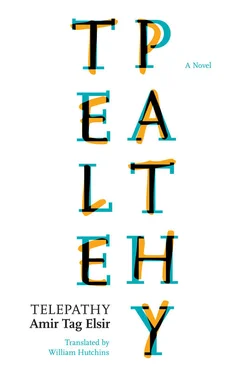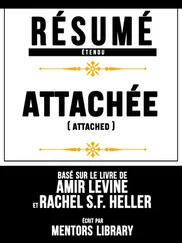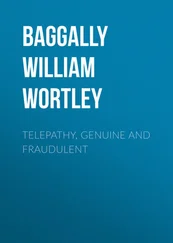Even though the audience was small, people had begun to slip away without embarrassment. A young woman whose name I don’t remember, although I see her occasionally at cultural events, was taking notes on a piece of paper as if she were a pupil in an important lesson.
It seemed to me that Mahatma Abd al-Rahman wanted the professor to stretch him out right then and massage the map of his feet, because he was holding them out in front of him and kept pressing them together. The seat of Sonia al-Zuwainy, the hair stylist, was empty, and the isolated youth remained alone. The swimming coach, Shushu, was shaking his long hair rapturously, and my middle-aged neighbor, the woman with the embroidered green dress and heavy gold earrings, leaned toward me again the moment I started to rise. She whispered, “Now I recognize you. You courted me when we were in secondary school. You’ve matured a lot, but I know you with a woman’s memory. How are you, dear? Are you married?”
I didn’t reply and quickly shot outside.
I stood in a rather dark corner of the outer hall of the club building, smoking my cigarette deliberately while I tensely revisited my Asian memories, hoping they would speak again quickly so I could record them the moment I returned home.
The hall, unlike the inside chamber where the lecture was held, was very crowded. At a number of tables people of different ages were eagerly playing dominoes and cards. People were speaking shrilly about the current political situation, the faltering national economy, and local football matches. A few people were gathered around an old table-football board situated in the opposite corner, waiting impatiently for their turn.
It was a run-of-the-mill hall in an ordinary club where the presence of a novelist, even a stellar one, would definitely not attract anyone’s attention. The people there were far removed from the paths of reading. All the same, something unusual happened at that moment. I suddenly saw Ranim’s troubled lover emerge from an inner room. He was wearing his same traditional garb — thobe, turban, and goatskin shoes — and heading rapidly toward me. In his right hand was a copy of Hunger’s Hopes and in the left was what in my alarm I imagined to be a lethal dagger.
I quickly tossed my cigarette on the floor and hurried toward the exit, fighting a painful urge to scream and summon the people busy playing to protect me as if I were attacked by a lunatic. Scenes and memories raced through my mind: what I had and hadn’t produced during my lifetime, what had been really happy and what painful. I thought about the curse that writing is and told myself that it is the greatest curse that could afflict a math teacher who otherwise might today have become Minister of Education or at least a noteworthy educational adviser.
For the most part, my writing has been a mix of reality and imagination — something inspired by my surroundings and something I invent. But even when I find inspiration from reality, I don’t write it down the way it is but rather change it so that it won’t wound anyone; I don’t allow reality the chance to assert its dominion. Friends, family members, neighbors, acquaintances, activists and recluses in the world have found their way into my writing, yet no one has ever said, “That character’s me.” No protagonist of a scene I borrowed has ever repeated that this was his scene and that he would kill me for writing about him. I don’t even use the real names of cities for fear a city will come forward one day to claim I have depicted it. Even though I have described in many passages the liveliness of my street, not one of its residents has ever reproached me.
When the man stood before me, to my intense astonishment, I flashed through all of Hunger’s Hopes and called to mind all its characters, cul-de-sacs, alleys, paved streets, and rocky paths. I pondered its inspired and uninspired parts, what I considered brilliant in it and what I thought was flavorless and vile. I finished my review without finding anything that resembled this man or that would cause him to pursue me this way.
The novel was in his right hand; what I had imagined to be a lethal dagger was a figment of my imagination, because his left hand was empty.
Shaken, I tried to relax, fearing that he would run away from me. I asked the man, “What do you want from me? Why are you pursuing me?”
He smiled or perhaps laughed — I couldn’t tell which. All I could discern was that his wide mouth opened somewhat and his teeth confronted me, although tobacco had marred them so much that none of them could really be called a tooth. I thought I heard a sound that might have been the clearing of a throat prior to a laugh.
He said, “I brought my copy of Hunger’s Hopes so you could sign it for me. I told you before you traveled that I would bring it to you one day. Do you remember me? Do you remember the copy you signed for my sweetheart, Ranim?”
“Yes, your sweetheart Ranim; who could forget something like that?”
I didn’t ask him how he knew that I had returned from my trip and had been conned into attending this lecture. It seemed to me he was stalking me or could predict my movements — I didn’t know for certain which.
I took the copy he was holding out to me as my shaken resolve to flee grew. I searched my pocket for a pen but didn’t find one. Then I saw the man dig into the pocket of his thobe and pull out an old blue pen without a cap.
“Take this,” he said in a harsh tone, offering me the pen.
“Your name, sir, so I can write the dedication. You didn’t mention it last time.”
With calm, deadly firmness, he replied, “Nishan Hamza Nishan.”
“Who?”
I suspect that I was quite agitated. No, I was only upset momentarily. I pulled myself together as best I could. Here was a crazy man who was trying to provoke me, but I wasn’t going to fall for his provocation.
No one has a rare name like this, at least not in the combination I had struggled hard to concoct to avoid any possible repercussions. No one is named Nishan Hamza Nishan except the lunatic who dwells inside the pages of Hunger’s Hopes and whose fate I sealed, feeling no remorse and leaving him no further options, when I gave him glandular cancer and wrote that there was no hope for a cure. Had the man said his name was Muhammad Hamza or Hamza Ahmad or any familiar name in common circulation in the world, I would have believed him. If he had said Nishan Abd al-Mutallib, for example, or Abd al-Ghani Nishan, I would also have believed him. Even if he had said he was Nishan George or Mark Nishan, I might have believed him. But for him to claim the full three-part name, just as it appeared in my text, was totally incredible.
I grasped the book with uncharacteristic braggadocio, which I feign occasionally in fleeting moments of weakness in the hope that the person challenging me will feel he is confronting a mountain. I opened the book to the first page and wrote, with the pen the man had loaned me, “To Dear Nishan Hamza Nishan, in memory of a profound and stirring encounter during a chance meeting. With my love.”
Then I signed my name the way I always do, wrote the date and place clearly, and handed the book and pen back to the man. I searched for my cigarettes to smoke a new one to make up for the one I had tossed away when he appeared. But the story, unfortunately, did not end here. Instead, it became even more unsettling. This surprising novel was about to have a new beginning — one I had never anticipated or included in my calculations.
Ranim’s shaky lover, aka Nishan Hamza Nishan, as he called himself, accepted the signed copy and his old pen but then, unexpectedly, pulled his identity card which was dated more than six years earlier, from his pocket. He held it before my eyes, which were wide open, long enough for me to read all the seals and signatures and even to see the grease spot on one edge, not to mention the web of tiny cracks on the side of the photo, in which he wore an open, dark green shirt. With thick black hair and a carefully trimmed beard, he looked a more appropriate suitor for a woman named Ranim and therefore more like the Nishan Hamza Nishan I had written about.
Читать дальше












